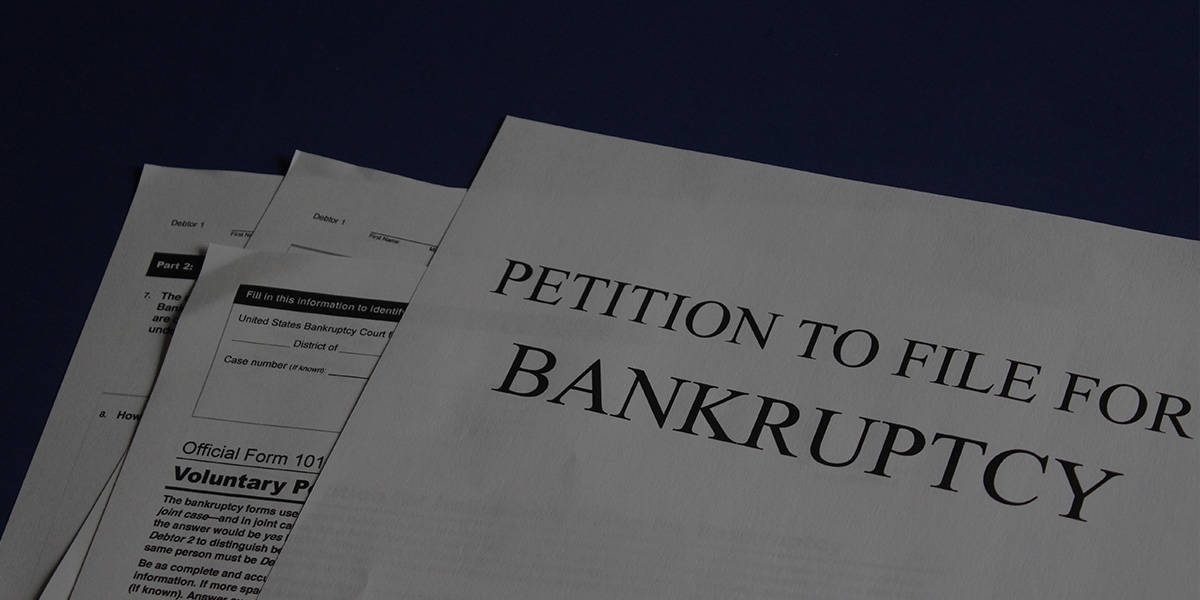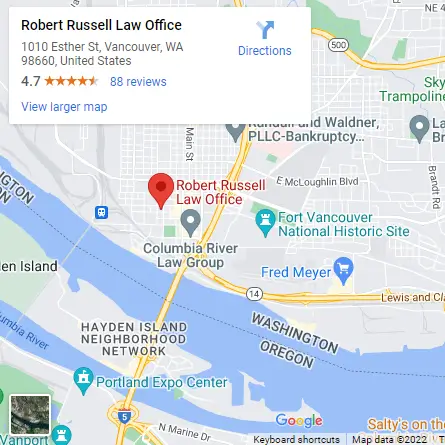A Chapter 7 Reaffirmation Agreement, when timely filed with the court, “undoes” the debtor’s discharge for that particular reaffirmed debt. Only secured debts are reaffirmed (e.g., car loans and, sometimes, home loans). After discharge, a debtor is personally liable on the debt that would have been discharged in the bankruptcy. If the debtor does not make payments on time under the contract, the creditor can sue the debtor just as if the debtor had never filed bankruptcy. [Of course, the creditor retains the right to take the collateral (car/house) if the debtor defaults.] Therefore, it’s a big deal to reaffirm a debt. A reaffirmation should only occur after careful review of the potential consequences.
The Chapter 7 debt reaffirmation process involves two documents – the Cover Sheet and the Reaffirmation Agreement. Below you will find a link to each document (and an alternate form for the Reaffirmation Agreement). You will see that the actual Reaffirmation Agreement is seven pages long and not the easiest document to interpret.
To be effective, a Reaffirmation Agreement must be filed with the court before the Discharge Order is entered (which occurs 60 days after the 341 Meeting or about 90 days after filing, See FRBP 4008, below).
Reaffirmation Agreement Cover Sheet (Official Form B27)
[last updated: 12/13/2013]
http://www.wawb.uscourts.gov/read_file.php?file=4245&id=0
Reaffirmation Documents (Official Form B240A_0410)
[last updated: 12/13/2013]
http://www.wawb.uscourts.gov/read_file.php?file=4244&id=0
Reaffirmation Agreement (Official Form B240AB_ALT)
[last updated: 12/13/2013]
http://www.wawb.uscourts.gov/read_file.php?file=4246&id=0
Federal Rule of Bankruptcy Procedure
Rule 4008. Filing of Reaffirmation Agreement; Statement in Support of Reaffirmation Agreement
(a) Filing of Reaffirmation Agreement. A reaffirmation agreement shall be filed no later than 60 days after the first date set for the meeting of creditors under §341(a) of the Code. The reaffirmation agreement shall be accompanied by a cover sheet, prepared as prescribed by the appropriate Official Form. The court may, at any time and in its discretion, enlarge the time to file a reaffirmation agreement.
(b) Statement in Support of Reaffirmation Agreement. The debtor’s statement required under §524(k)(6)(A) of the Code shall be accompanied by a statement of the total income and expenses stated on schedules I and J. If there is a difference between the total income and expenses stated on those schedules and the statement required under §524(k)(6)(A), the statement required by this subdivision shall include an explanation of the difference.
Notes
(As amended Apr. 30, 1991, eff. Aug. 1, 1991; Apr. 23, 2008, eff. Dec. 1, 2008; Mar. 26, 2009, eff. Dec. 1, 2009.)
Notes of Advisory Committee on Rules—1983
Section 524(d) of the Code requires the court to hold a hearing to inform an individual debtor concerning the granting or denial of discharge and the law applicable to reaffirmation agreements.
The notice of the §524(d) hearing may be combined with the notice of the meeting of creditors or entered as a separate order.
The expression “not more than” contained in the first sentence of the rule is for the explicit purpose of requiring the hearing to occur within that time period and cannot be extended.
Notes of Advisory Committee on Rules—1991 Amendment
This rule is changed to conform to §524(d) of the Code as amended in 1986. A hearing under §524(d) is not mandatory unless the debtor desires to enter into a reaffirmation agreement.
Committee Notes on Rules—2008 Amendment
This rule is amended to establish a deadline for filing reaffirmation agreements. The Code sets out a number of prerequisites to the enforceability of reaffirmation agreements. Among those requirements, §524(k)(6)(A) provides that each reaffirmation agreement must be accompanied by a statement indicating the debtor’s ability to make the payments called for by the agreement. In the event that this statement reflects an insufficient income to allow payment of the reaffirmed debt, §524(m) provides that a presumption of undue hardship arises, allowing the court to disapprove the reaffirmation agreement, but only after a hearing conducted prior to the entry of discharge. Rule 4004(c)(1)(K) accommodates this provision by delaying the entry of discharge where a presumption of undue hardship arises. However, in order for that rule to be effective, the reaffirmation agreement itself must be filed before the entry of discharge. Under Rule 4004(c)(1) discharge is to be entered promptly after the expiration of the time for filing a complaint objecting to discharge, which, under Rule 4004(a), is 60 days after the first date set for the meeting of creditors under §341(a). Accordingly, that date is set as the deadline for filing a reaffirmation agreement.
Any party may file the agreement with the court. Thus, whichever party has a greater incentive to enforce the agreement usually will file it. In the event that the parties are unable to file a reaffirmation agreement in a timely fashion, the rule grants the court broad discretion to permit a late filing. A corresponding change to Rule 4004(c)(1)(J) accommodates such an extension by providing for a delay in the entry of discharge during the pendency of a motion to extend the time for filing a reaffirmation agreement.
Rule 4008 is also amended by deleting provisions regarding the timing of any reaffirmation and discharge hearing. As noted above, §524(m) itself requires that hearings on undue hardship be conducted prior to the entry of discharge. In other respects, including hearings to approve reaffirmation agreements of unrepresented debtors under §524(c)(6), the rule leaves discretion to the court to set the hearing at a time appropriate for the particular circumstances presented in the case and consistent with the scheduling needs of the parties.
Changes Made After Publication. The only change was stylistic. The phrase “of the Code” was added to subdivision (b).
Committee Notes on Rules—2009 Amendment
Subdivision (a) of the rule is amended to require that the entity filing the reaffirmation agreement with the court also include Official Form 27, the Reaffirmation Agreement Cover Sheet. The form includes information necessary for the court to determine whether the proposed reaffirmation agreement is presumed to be an undue hardship for the debtor under §524(m) of the Code.
Changes Made After Publication. No changes since publication.






